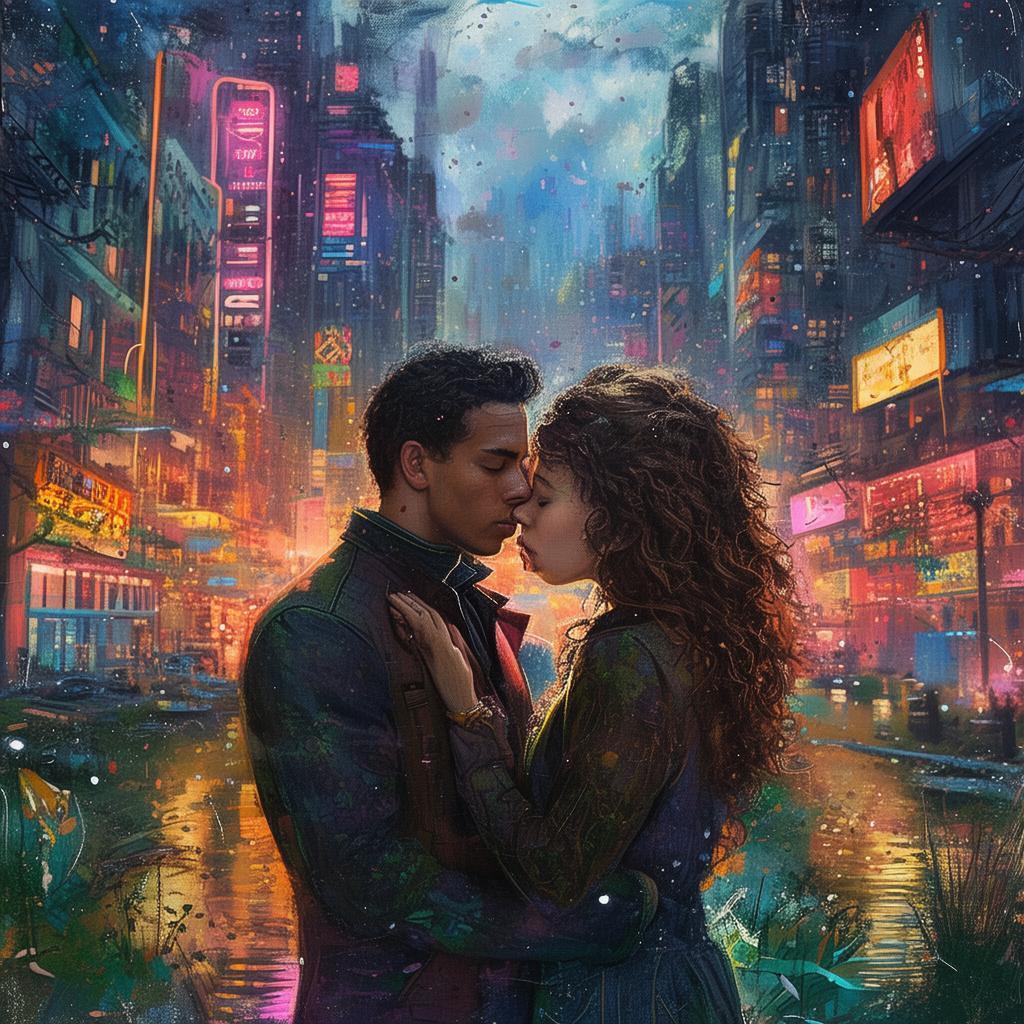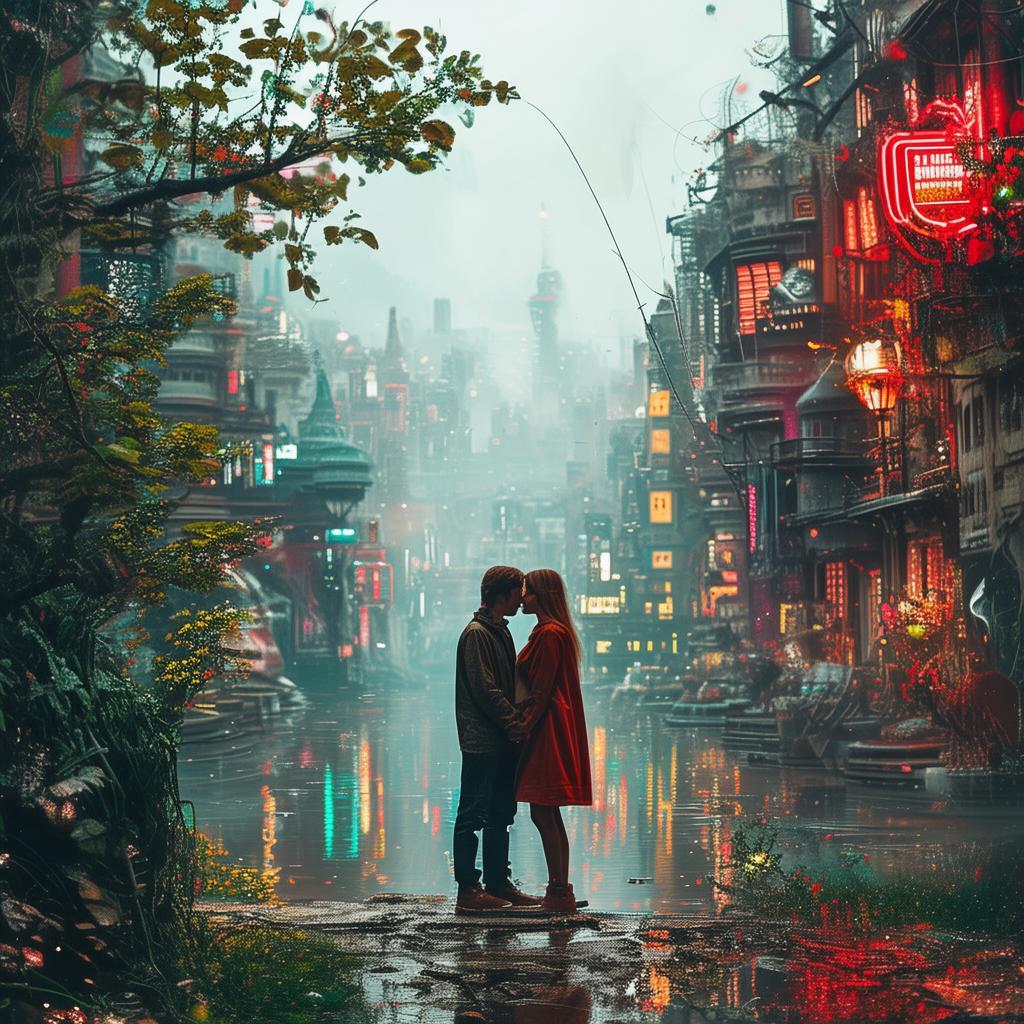The Lhoba's Moonlit Duet: A Love That Sings
In the heart of the Eastern Himalayas, where the misty mountains kiss the clouds, there lay a secluded village known to the world as a sanctuary of ancient traditions and enchanting melodies. The Lhoba people, with their distinct customs and a rich musical heritage, lived in harmony with nature. In the village of Chhukha, under the watchful eyes of the towering deodars, there was a tale that would echo through the ages—a tale of love, loss, and a moonlit duet that would change two souls forever.
The young singer, Lhima, was the daughter of the village’s most revered musician. Her voice was like a silver thread weaving through the forest, a melody that could soothe the fiercest of storms. She spent her days under the guidance of her father, learning the intricate art of Lhoba music. Lhima's heart, however, was her own melody, a forbidden love that she dared not sing.
In the neighboring village of Nyingchi, there lived a young prince, Kunsang. Kunsang was a boy of royal lineage, destined to lead his people into prosperity. His heart was filled with dreams of exploration and knowledge, and his mind was always seeking new ways to understand the world. But Kunsang's true passion was music, a talent that he kept hidden, for in Lhoba tradition, a prince should not indulge in the arts.

One evening, as the moon rose like a silver coin in the sky, Lhima and Kunsang met by chance. They were young and naive, unaware of the forces that sought to keep them apart. But fate, in its cruel and beautiful ways, had other plans. In the soft glow of the moon, the two souls found solace in each other's company. They shared stories, sang songs, and played their hearts out in a duet that was forbidden by their heritage.
As the night waned and the stars began to twinkle, Lhima and Kunsang were discovered by their families. The shock of their forbidden love was a thunderclap that shattered the serenity of the night. The elders of the village were aghast, for such an alliance would bring dishonor to both their families and to the Lhoba heritage.
But the young lovers were not deterred by the prospect of disapproval. They knew that their love was a bond that could not be broken, not even by the mightiest of forces. With each moonlit night, they met, their duet growing more passionate, more profound, and more dangerous. The village watched with bated breath, for the fate of the two lovers was as unpredictable as the winds that swept through the deodar forests.
As the days turned into weeks, the village was thrown into turmoil. The elders, desperate to protect their heritage, decided that the only way to restore order was to part the lovers. Lhima was banished from the village, her father forbidden from teaching her the art of music. Kunsang was sent away on a diplomatic mission, his heart heavy with the weight of duty.
The lovers were separated by the mountains and the sea, their duet now a distant memory. But the melody of their love lingered, a whisper that reached the ears of everyone who would listen. The story of the Lhoba's Moonlit Duet became a legend, a tale of love that defied tradition, a love that sang through the ages.
Years passed, and Lhima returned to the village as an accomplished musician. She had traveled far, learned from the world, and brought back with her the sounds of the universe. Kunsang, too, returned, his mission complete but his heart forever changed. The two met again, their duet now a testament to the resilience of love.
The village, once united by fear, now stood in awe of the love that had grown from the shadows of their traditions. The Lhoba's Moonlit Duet was no longer a forbidden love; it was a melody that had transcended time and place. Lhima and Kunsang married, their love uniting two families and two cultures. The village, once divided, became a beacon of unity and understanding.
The legend of the Lhoba's Moonlit Duet was etched into the stones of Chhukha, a story of love that sang not just through melodies but through the hearts of all who heard it. And as the moon rose each night, it seemed that the melody of the duet was carried on the wind, a reminder that love, in all its forms, is the most powerful force in the world.
✨ Original Statement ✨
All articles published on this website (including but not limited to text, images, videos, and other content) are original or authorized for reposting and are protected by relevant laws. Without the explicit written permission of this website, no individual or organization may copy, modify, repost, or use the content for commercial purposes.
If you need to quote or cooperate, please contact this site for authorization. We reserve the right to pursue legal responsibility for any unauthorized use.
Hereby declared.









